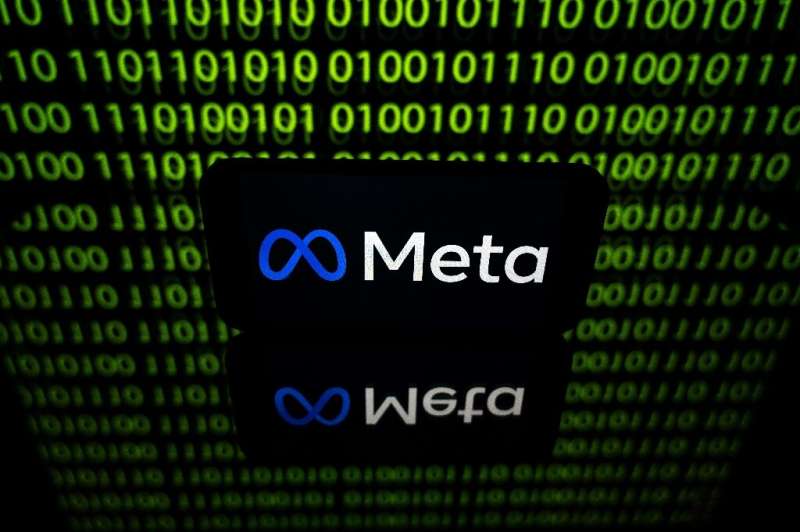Facebook-owner Meta to roll out paid subscription

Facebook, the social network that was supposed to stay free “always,” and its stablemate Instagram launched on Sunday a paid subscription service, as the advertising-based business model that has long dominated the internet falters.
Mark Zuckerberg, the CEO of Facebook-parent Meta, announced on Sunday the launch of Meta Verified, a service starting at $11.99 a month to authenticate one’s account, which follows a similar move by Elon Musk at Twitter.
“This new feature is about increasing authenticity and security across our services,” Zuckerberg wrote in a statement posted to Facebook and Instagram.
Meta Verified will be rolled out in Australia and New Zealand this week before coming to markets in the United States and other countries.
Subscribers will get a badge indicating their account has been verified with a government ID, extra protection against impersonation, direct access to customer support and more visibility, according to the company.
The social media giant said the service would be primarily aimed at content creators looking to expand their presence on the platforms and could see adjustments after a test phase.
There would be no changes to accounts on Facebook and Instagram that are already verified, the company said, adding that only users who are over the age of 18 will be allowed to subscribe. The service is not yet available to businesses.
It was not immediately clear how Zuckerberg planned to price Meta Verified in countries where users cannot afford to pay $12 a month, or in cash-based economies where they may have fewer ways to get the money to Meta.
Musk’s initial attempts to launch a similar service at rival social media network Twitter last year backfired, with an embarrassing spate of fake accounts that scared advertisers and cast doubt on the site’s future.
He was forced to briefly suspend the effort before relaunching it to muted reception in December.
‘Free’?
Facebook helped establish the dominant model of large platforms on the internet today, which sees users benefit from “free” services that collect their data to sell personalized ad space.
It is a model that has earned the company, along with other advertising titans such as Google, tens of billions of dollars a year.
For years the Facebook homepage proudly declared that the site was “free and always will be.”
But in 2019 the company quietly ditched the slogan. At the time experts suggested it was because the value of users’ personal data meant the site was never truly free.
In 2022, Meta saw its ad revenue decline for the first time since the California-based group went public in 2012.
The company recently announced that the number of Facebook’s daily users hit two billion—but between inflation eating into advertisers’ budgets and fierce competition from apps such as TikTok, those users are not bringing in as much revenue as they used to.
The company has also suffered from regulatory changes introduced by iPhone maker Apple, which restrict the ability of social networks to collect data and sell advertising.
Similar factors have already pushed other networks, from Reddit to Snapchat as well as Twitter, to launch paid plans.
Meta is also under pressure for making a huge gamble on the metaverse, the world of virtual reality that Zuckerberg believes will be the next frontier online.
‘Not a small fee’
Investors last year punished Meta, sending the company’s share price down by an astonishing two-thirds over 12 months, but the stock has recovered some ground in 2023.
Meta announced in November it would lay off 11,000 employees, or 13 percent of its staff—the largest worker reduction in the company’s history.
Meta Verified will be cheaper on the web than on mobile applications because of commissions taken by Apple on the iPhone or Google on smartphones operated by its Android system.
Zuckerberg said it would cost $11.99 on the web, and $14.99 per month on iOS or Android.
The company said it doesn’t expect to make significant revenue from the service during the test phase but that it is part of diversification efforts.
“Personally, I think it’s more about diversifying revenue,” said Carolina Milanesi, an analyst at Creative Strategies.
After Twitter launched its subscription, other social media groups thought “well, we might as well try,” she told AFP.
“Justifying that from a creator perspective I think is more of a marketing pitch than of true value to creators,” she added.
Platforms are fighting for users and that of influencers that draw their attention.
But for Milanesi, the Meta Verified offers are “a weird mix.”
“I don’t know if it gives enough to one category (of users) to justify the amount of money, which is not a small fee.”
© 2023 AFP
Citation:
Facebook-owner Meta to roll out paid subscription (2023, February 20)
retrieved 20 February 2023
from https://techxplore.com/news/2023-02-facebook-owner-meta-paid-subscription.html
This document is subject to copyright. Apart from any fair dealing for the purpose of private study or research, no
part may be reproduced without the written permission. The content is provided for information purposes only.
For all the latest business News Click Here

